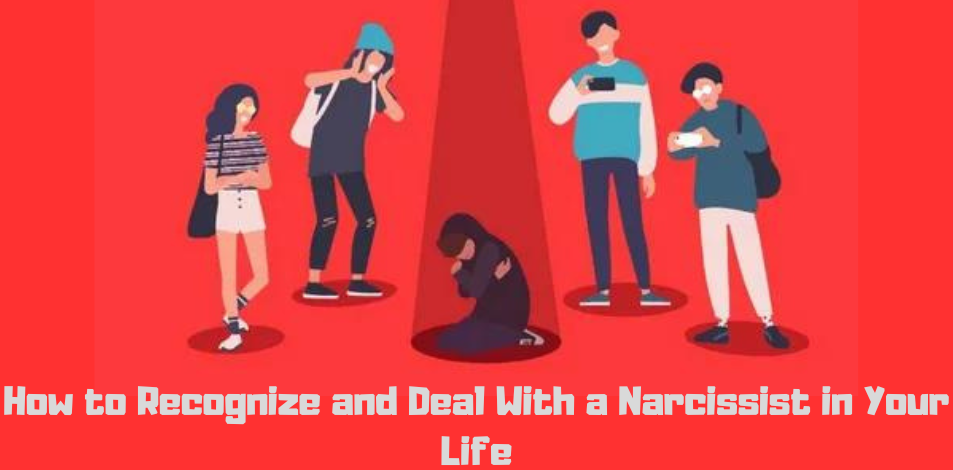
If you have a narcissist in your life, know that this abusive relationship is not your fault.
Practicing mindfulness can help you learn to trust others.
Tips for recovering from a relationship with a narcissist include setting boundaries, being your friend, and gradually building a circle of people you trust.
If you have a narcissist in your life, you can’t trust that person—and it’s not your fault.
I grew up with a charming, unpredictable, and emotionally distant mother. When I brought my artwork home from school, she would dismissively respond, “That’s sweet, honey.” I would dust and vacuum, clean the kitchen, scrub the bathrooms, and polish the silver. But it was never enough. Sometimes I got dismissive approval, and sometimes hurtful criticism. She was charming and enthusiastic one moment, and reluctant the next. I never knew what to expect. One of the reasons that heightened my doubts was my father’s career in the Air Force, which kept us constantly moving to new assignments.
During my senior year at a military high school in Germany, I applied to UCLA, my dream college, and when my acceptance letter came in the mail, I was thrilled. Then my family moved to Riverside, California for my father’s next assignment at Norton Air Force Base.
In August, I was preparing to go to UCLA when my mother announced, “Your father and I have transferred your admission to UC Riverside, so you don’t have to go to college.”
“Why?” I asked in shock.
“We can’t afford it,” she said.
I was confused and disoriented. Was my family in serious financial trouble? My father was a colonel in the Air Force and we were always strapped for cash. But I was told that college was too expensive.
So I lived at my parents’ house, commuting to school, worrying about my family’s finances, and looking for jobs off campus. But that December, my mother bought me a mink coat and a new Mercedes for Christmas. Their money wasn’t the problem. She had lied to me again.
The following summer, I got a part-time job at the local newspaper, moved into the UC Riverside dorms, continued my college education, and did a graduate fellowship at UCLA.
With hard work, I solved the external problem, but the internal problem haunted me for years. It was hard to accept that my mother was not being honest. I kept reaching out to her, trying to understand our relationship, wondering if there was something wrong with me.
After many disappointments, I finally realized that I couldn’t trust her. Years later, in graduate counseling classes, I discovered why. She was a classic narcissist—charismatic, charming, and charming, but selfish, emotionally cold, and lacking in empathy.
Is there someone in your family that you love but can’t trust? Do you have a narcissist in your life? The Diagnostic and Statistical Manual of Mental Disorders (DSM-5; 2013) defines an adult with narcissistic personality disorder if they have at least five of these characteristics:
An exaggerated sense of self
Fantasies of extreme success and power
Belief that they are “special” and deserving of high status treatment
Desire to be the center of attention, and desire for excessive admiration
Sense of entitlement
Habitually manipulating and exploiting others
Lack of empathy
Envy of others
Arrogance and self-importance (American Psychiatric Association, 2013)
Does this describe someone important in your life? If so, be kind to yourself. Recognize that this abusive relationship is not your fault (Dreher, 2014).
Fortunately, there are ways to begin healing this chronic lack of confidence. Seattle psychologist Meg Van Deusen has found that even if we lacked secure attachment as children, we can learn to trust by starting to practice mindfulness, which helps us develop “a nonjudgmental, compassionate relationship with ourselves.” With her clients, she has found that mindfulness practice can build “an internal working model of secure attachment, which helps us engage with the world with honesty and openness.”
You can begin your mindfulness practice by taking a meditative pause. To do this:
Take a slow, deep breath and let it out slowly.
Focus on what you’re feeling and give yourself a name for that feeling—“tired,” “anxious,” “frustrated,” “hurt,” or whatever.
Continue to focus on your breathing as you notice how you feel just being in the moment.
Then, after a few meditative moments, return to your usual activities.
You can take a meditative pause at any time throughout the day to reconnect with how you’re feeling and develop a more caring, trusting relationship with yourself. To try mindfulness meditation, check out Jon Kabat-Zinn’s 10-minute guided meditation.
You might also want to practice these self-compassion steps recommended by psychologist Kristin Neff (2011):
Mindfulness. The next time you’re feeling down, ask yourself, “What am I feeling?” Give yourself a name for your feelings—“I feel sad, scared, hurt, angry, confused.”
Common humanity. Tell yourself, “It’s okay. Nobody’s perfect. Everyone makes mistakes.”
Be kind to yourself. Actively soothe yourself with kind words. You can even hug yourself, suggests Neff, by crossing your arms over your chest and squeezing your upper arms, saying, “Poor you, you’re hurting right now.”
Recovering from a relationship with a narcissist is an ongoing process. These strategies may help.
Start by setting boundaries with this person so you’re less likely to be emotionally ambushed.
Be a better friend to yourself and learn to recognize your emotional triggers.
Discover the people in your life you can trust and those you can’t.
Then gradually build your circle of trust with people you can trust.
You may need to seek professional help from a therapist or counselor to address this painful pattern and achieve greater balance in your life.




